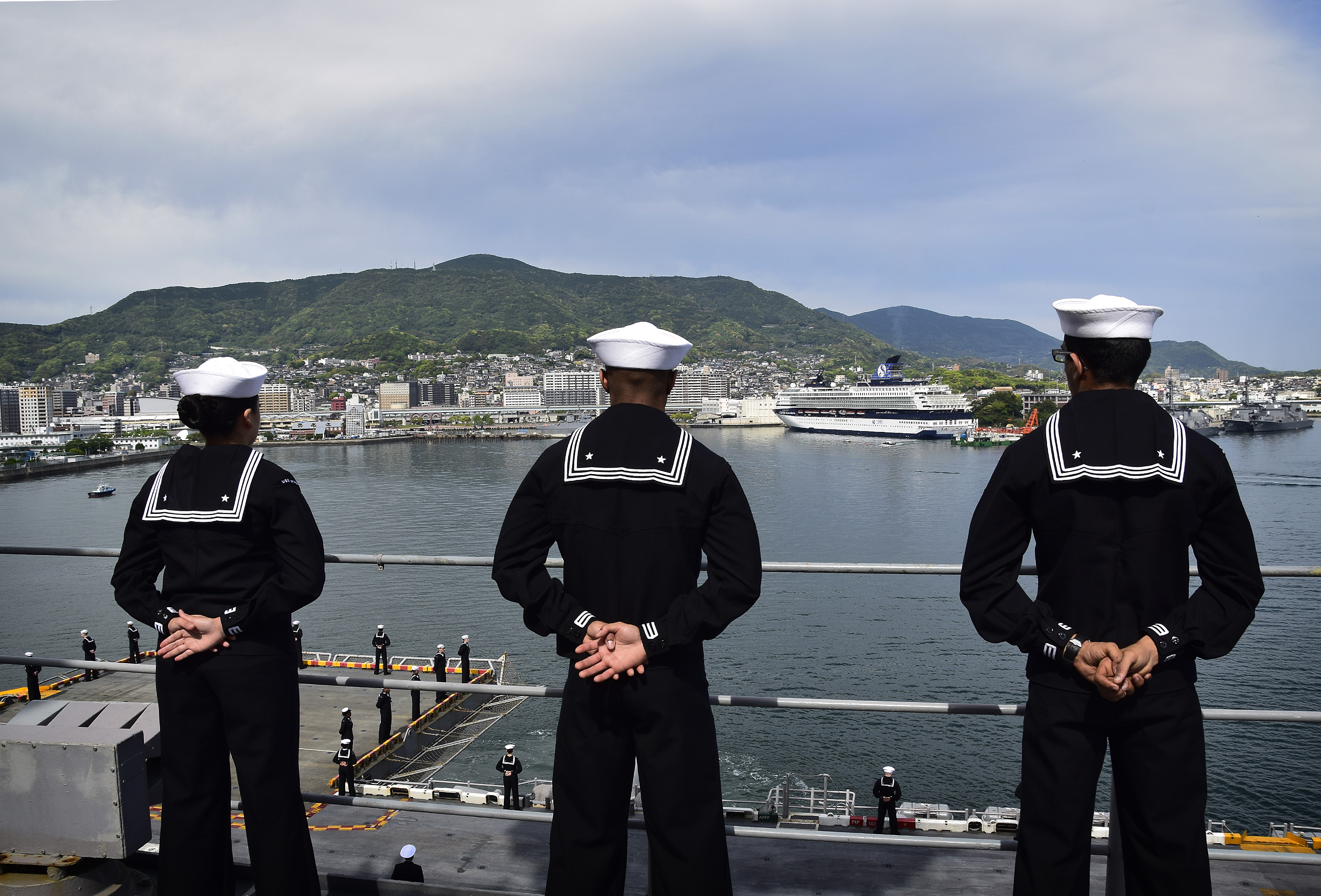
THE PENTAGON — The Navy is extending initial tour lengths for forward deployed enlisted sailors in an attempt to cut down on the constant churn of personnel passing through ships based overseas.
First-term sailors being sent to sea duty billets in forward deployed locations – Japan, Guam, and Spain – will be assigned to tours of up to 4 years if accompanied or unaccompanied. If a sailor’s family is not given command sponsorship, a maximum of two years unaccompanied orders will be issued, according to a Navy announcement released Tuesday.
Previously, sailors assigned to these locations during their first commitment received 3-year orders to their duty station, according to the stated policy of the Navy Personnel Command.
This policy change appears designed to provide some continuity of service aboard forward-deployed ships and address the Navy’s pressing need for more sailors serving on ships.
“The discussion among senior Navy leaders about extending FDNF sea duty tour lengths started in September 2017,” said Lt. Rick Moore, a spokesman for Chief of Naval Personnel.
The formal exception to policy request was submitted in November. Staffing shortages were cited as a contributing factor leading to the series of deadly 2017 ship collisions in the Pacific, according to the Comprehensive Review ordered by Chief of Naval Operations Adm. John Richardson, and released in November.
The Comprehensive Review found manning levels had been declining aboard forward-deployed ships for years. The problem was caused by a variety of factors, the review found, including, “by underfunded manpower total ownership costs, a high number of apprentice level enlisted rolling ashore after increased manning of sea duty assignments in 2013-2014, a lower number of accessions in 2016 (and for all FDNF-Japan, Rota, and Bahrain ships) due to unaccompanied/accompanied tour length policies and sea duty and overseas screening processes.”
Another problem was commanders pulled sailors from other duties to temporarily fill open billets aboard ships. Doing so allowed sailors to gain proficiency at sea but came at a cost.
“This practice can also impact the temporarily assigned sailor by reducing the opportunity to complete school or training while in port. Additionally, this practice reduces the overall number of sailors remaining on the in-port ship to complete daily tasks while in maintenance and places additional stress on affected sailors and families,” the Comprehensive Review stated.
The Navy is already facing a tough recruiting and retainment environment and is currently short the number of sailors it says are needed to properly staff ships, as previously reported by USNI News.
The service is about 11,000 sailors short of its near-term required manpower level, based on a USNI News analysis of stated Navy recruiting, retainment, and staffing needs. As the Navy seeks to increase the size of its fleet, up to a proposed 355 ships, the need for more sailors at sea will only increase.
Extending the length of initial overseas tours is only the latest policy change designed to keep sailors onboard longer. During the past several months, the Navy has canceled early retirement programs and changed its Physical Readiness Program separation policies. Sailors who fail their physical readiness tests can remain in the Navy but will not be able to advance in rank until they pass the test, or their commitment is over.
The Navy also sweetened the pot to encourage sailors already forward deployed to extend their tours up to four years. In February, the Navy announced sailors who volunteer to extend their overseas tours to at least 4 years will have any remaining sea time left on their prescribed sea tour waived and be allowed to rotate to shore duty for their next assigned tour. Sailors extending their tours by at least 12 months will receive preferential consideration for announced billets during detailing.
“Our goal is to reward those Sailors who volunteer to extend to meet the demands from the fleet,” said a release from Rear Adm. John Meier, the director of the Career Management Department in Millington, Tenn., when the incentives were unveiled.





